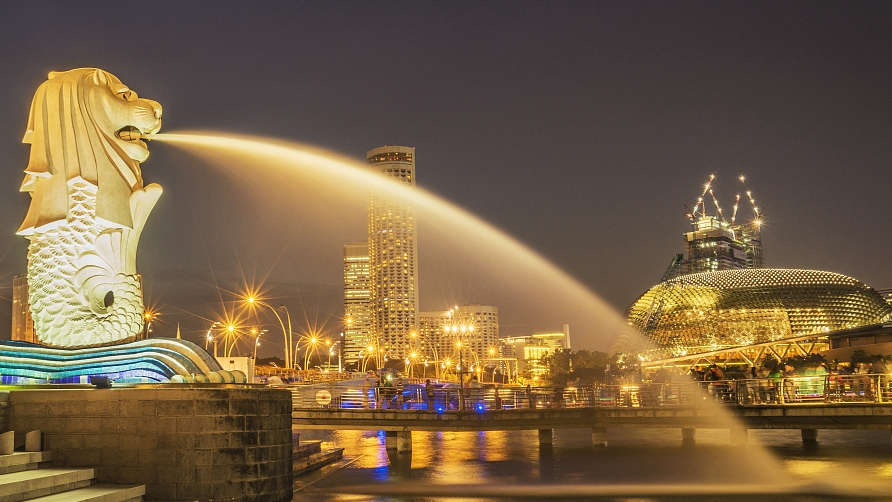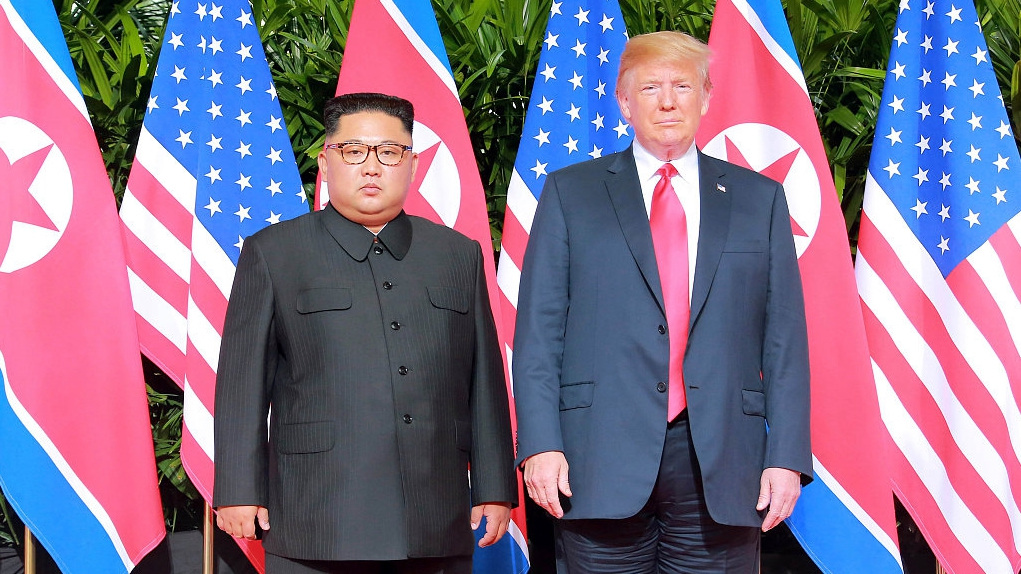
Asia Pacific
13:45, 25-Feb-2019
Trump-Kim summit: Round 1 was a big boost for ‘Brand Singapore’
Updated
14:28, 25-Feb-2019
By Miro Lu
03:11

Singapore, a major trading and financial hub, is well known for its efficiency and reliability when it comes to business. But it was the historic first meeting between U.S. President Donald Trump and Democratic People's Republic of Korea (DPRK) leader Kim Jong Un in June 2018 that truly put the "little red dot" on the world map.
The world sat up and took notice as the city-state hosted a strategically crucial summit flawlessly – an event that brought with it incredible pressure and what could, for any other nation, have been a nightmare of politics, security and diplomacy.
Though Singapore prefers to downplay its role, analysts believe that the summit buttressed it's soft power and strengthened its position as a neutral party and honest broker.
“Seeing the leaders of two countries meet historically for the first time and to have been able to play that role, stood Singapore in very good stead in terms of increased interest and focus on the country,” Nicholas Fang, the director of security and global affairs at the Singapore Institute of International Affairs, told CGTN.
Fang believes the historic meeting changed the way the world saw the country. Prior to the summit, there was an awareness of Singapore, “but potentially not that depth of knowledge when it came to the country's history and the country's current role in the global environment.”
Kevin Wee, a senior lecturer at the School of Business Management at Nanyang Polytechnic, added that the Trump-Kim summit helped establish that Singapore's diplomatic prowess is not proportional to its size.

U.S. President Donald Trump and Democratic People's Republic of Korea (DPRK) leader Kim Jong Un at their first summit in Singapore, June 12, 2018. /VCG Photo
U.S. President Donald Trump and Democratic People's Republic of Korea (DPRK) leader Kim Jong Un at their first summit in Singapore, June 12, 2018. /VCG Photo
"Singapore has been a place where parties who have some issues to discuss can come here because of a safe environment and it is reliable and secure to have good and productive meetings."
Extensive and continuous media coverage of the summit resulted in a massive spike in terms of searches for all things Singaporean. Google was abuzz with the phrase “Where is Singapore,” with over two million hits coming from the United States alone.
Singapore topped the news cycle of major news outlets across the globe for days before and after the summit – 8,000 pieces of content online mentioned the republic in their headlines.
The Singapore Tourism Board's initial estimates reveal that tourist arrivals increased by 6.2 percent with the Trump-Kim summit a factor in the rise.
Media and business intelligence firm Meltwater said its research shows that Singapore gained 700 million US dollars in advertising exposure.
“It essentially means that if you were an organization and if you are going to use paid media to put advertisements out there and to generate that kind of coverage how much would you need to pay,” Mimrah Mahmood, the company's regional director of media solutions, explained.
Another interesting observation was that sentiments about Singapore were predominantly negative prior to the summit. But the tiny nation managed to surprise the world, swinging the sentiments to positive.
For Mahmood, the excellent treatment of the media by the Singapore authorities was key to the positive coverage it received in the days following the summit.
“Even though the size is very small we are much more capable of running global events and I think that establishes a really good footprint for larger companies that come and look at Singapore as a base as well because we are looking at a country where everything works like clockwork.”
As the focus now shifts to the second Trump-Kim summit to be held on 27-28 February, Nicholas Fang believes that Singapore can lend its expertise and support to Vietnam.
“Singapore, having gone through the experience of the summit in 2018, understanding the logistical challenges, the security concerns that went around hosting two leaders of such major countries in the world. I think and I hope that our Vietnamese friends will be able to learn some lessons from our experience.”

SITEMAP
Copyright © 2018 CGTN. Beijing ICP prepared NO.16065310-3
Copyright © 2018 CGTN. Beijing ICP prepared NO.16065310-3